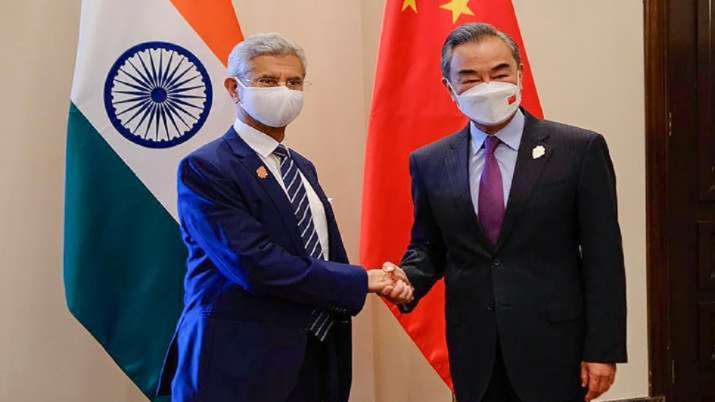
Highlight
- China and India have maintained communication and exchanges
- Both countries should insist on early return of bilateral ties: China
- Wang said China appreciates India’s support for hosting BRICS meetings
Chinese Foreign Minister Wang Yi told Indian counterpart S Jaishankar that relations between India and China have shown “speed of improvement” as the two countries have managed their differences effectively. During the meeting of the G-20 countries on Thursday, the two ministers met for an hour.
During an hour-long meeting on the sidelines of a conference of foreign ministers of the G20 countries, Jaishankar conveyed to Wang the need for early resolution of all outstanding issues along the Line of Actual Control (LAC) in eastern Ladakh, and said bilateral ties were mutual. Must be based on respect, mutual sensitivity and mutual interest.
India-China managed differences effectively
Wang said that since March this year, China and India have maintained communication and exchanges, effectively managed differences, and bilateral ties have generally “showed momentum of improvement.”
He said China and India share common interests and common legitimate claims. On bilateral issues, Wang said that the two countries should take practical action to implement the important consensus of the leaders of the two countries that “the two countries are not threats to each other, but are cooperation partners and opportunities for development.”
‘Both countries should insist on early return of bilateral ties’
He also said that both the countries should emphasize on getting the bilateral ties on the right track at the earliest and should brighten the bright future of the ties together. China and India, Wang said, share common interests and common legitimate claims, the state-run Xinhua news agency here quoted a press release on the talks issued by the Chinese foreign ministry.
Clearly referring to the independent stand of the two countries on the Ukraine issue, Wang said that since the world is passing through a century of invisible change, major countries like China and India will certainly not go with the flow, but strategically. Destined to maintain determination. , achieve their respective development and revitalization in accordance with the established goals, and make greater contribution to the future of mankind.
Appreciate India’s support in China hosting the BRICS summit.
Wang said that China appreciates India’s support for hosting the BRICS meetings and high-level talks on global development in June, and that it will be India’s next rotating chair of the G20 countries and the Shanghai Cooperation Organization (SCO) in 2023. will support the work. ,
Noting that the two countries, as advocates of multilateralism, share views in areas such as safeguarding peace and security, promoting economic recovery, improving global governance, jointly combating COVID-19, Wang Said that they should strengthen coordination and cooperation, and join the efforts. International relations should be more democratic, the international order fair, the voices of developing countries should be heard more and their legitimate interests should be better maintained.
In New Delhi, the Ministry of External Affairs (MEA) said Jaishankar reaffirmed the importance of “thorough adherence” to bilateral agreements and protocols, and the understanding between him and Wang in their previous talks.
“The External Affairs Minister (EAM) called for early resolution of all outstanding issues along the LAC in Eastern Ladakh,” the Ministry of External Affairs said in a statement.
This was the first meeting between the two foreign ministers since Wang’s visit to India on March 24 and 25.
Earlier, Chinese Foreign Ministry spokesman Zhao Lijian, referring to the Indian press release, said, “What I can say is that the China-India border area is generally stable at this time”.
‘Both sides are following important consensus’
“The two sides have agreed to adhere to the important common understanding achieved by the two leaders and the agreements signed by both sides and to properly resolve the issues relating to the western sector of the China-India border in line with the principle of mutual and equal security. ” They said.
“China and India are each other’s important neighbors. Both sides have the will and ability to jointly maintain peace in the China-India border areas,” he said.
The border standoff between Indian and Chinese armies began on May 5, 2020, following a violent clash in the Pangong Lake area.
The face-off escalated after the Galwan Valley clashes on June 15, 2020. Both sides gradually increased their deployment to tens of thousands of soldiers as well as heavy weapons.
As a result of a series of military and diplomatic talks, the two sides last year completed the separation process on the northern and southern shores of Pangong Lake and in the Gogra region.
Read also: ‘India-China relations should be based on…’: Jaishankar to Chinese counterpart Wang. Said to
Read also: Pakistan may hand over Gilgit-Baltistan to China to repay its rising debt: Report